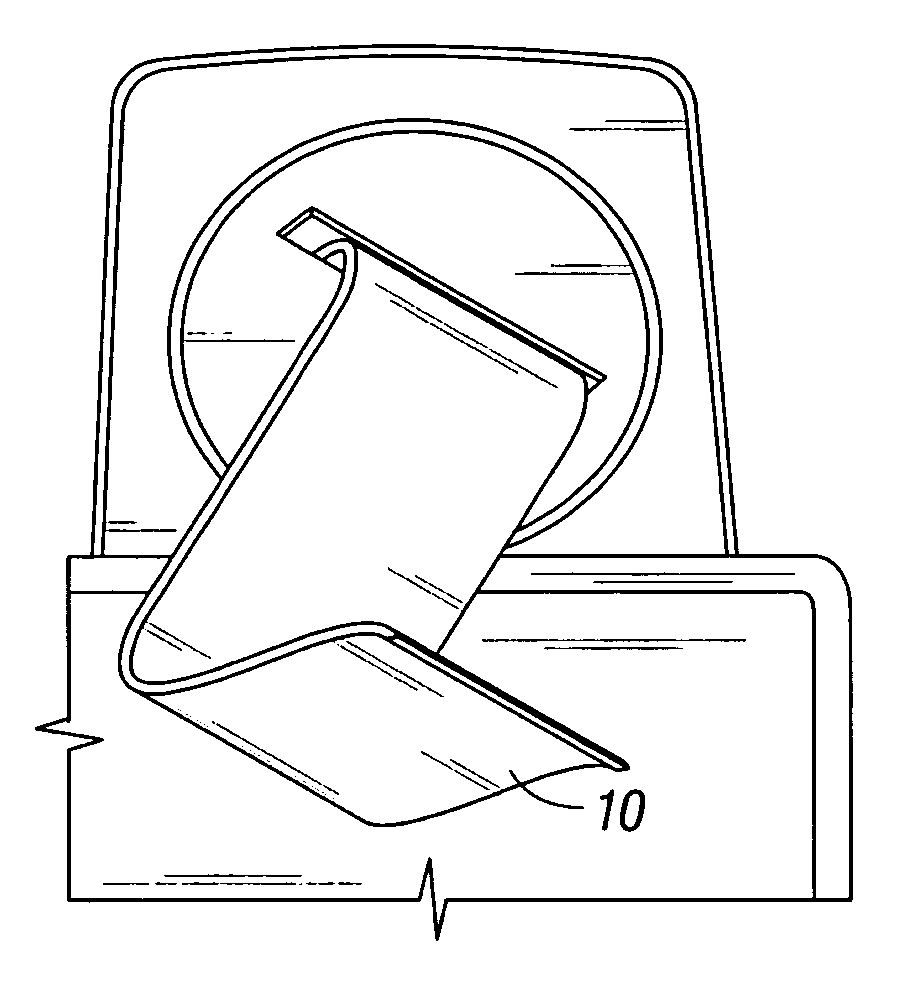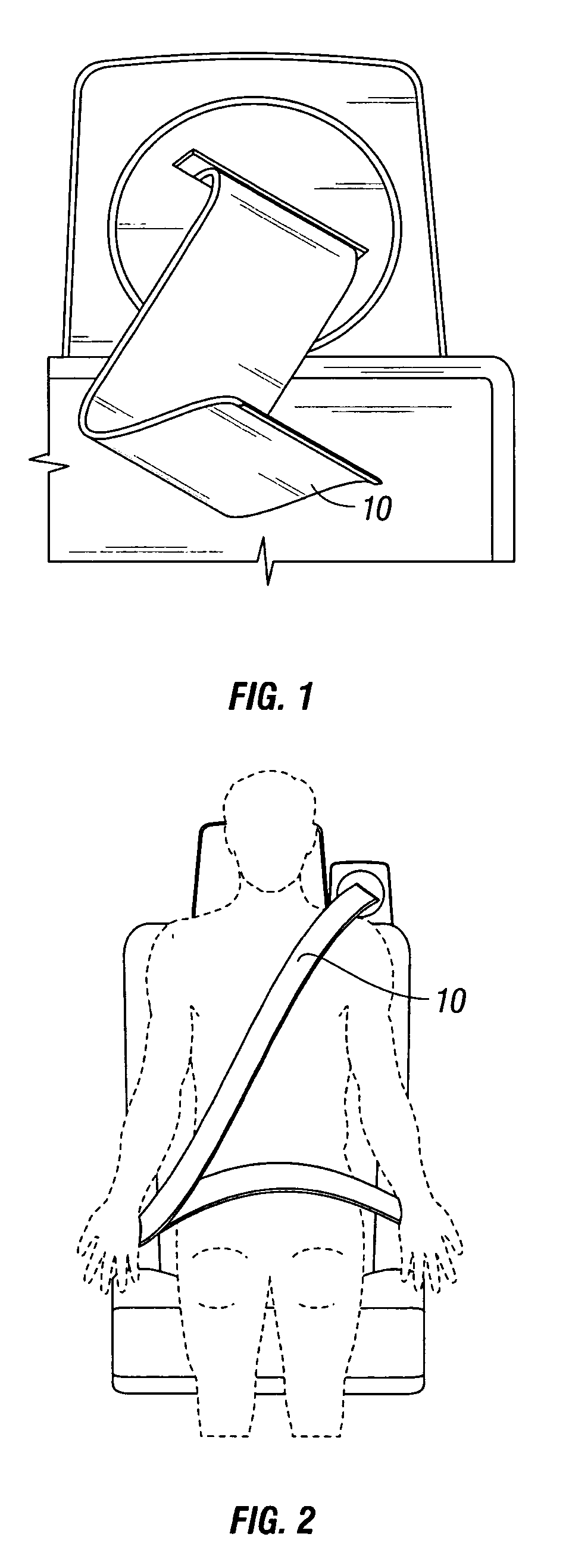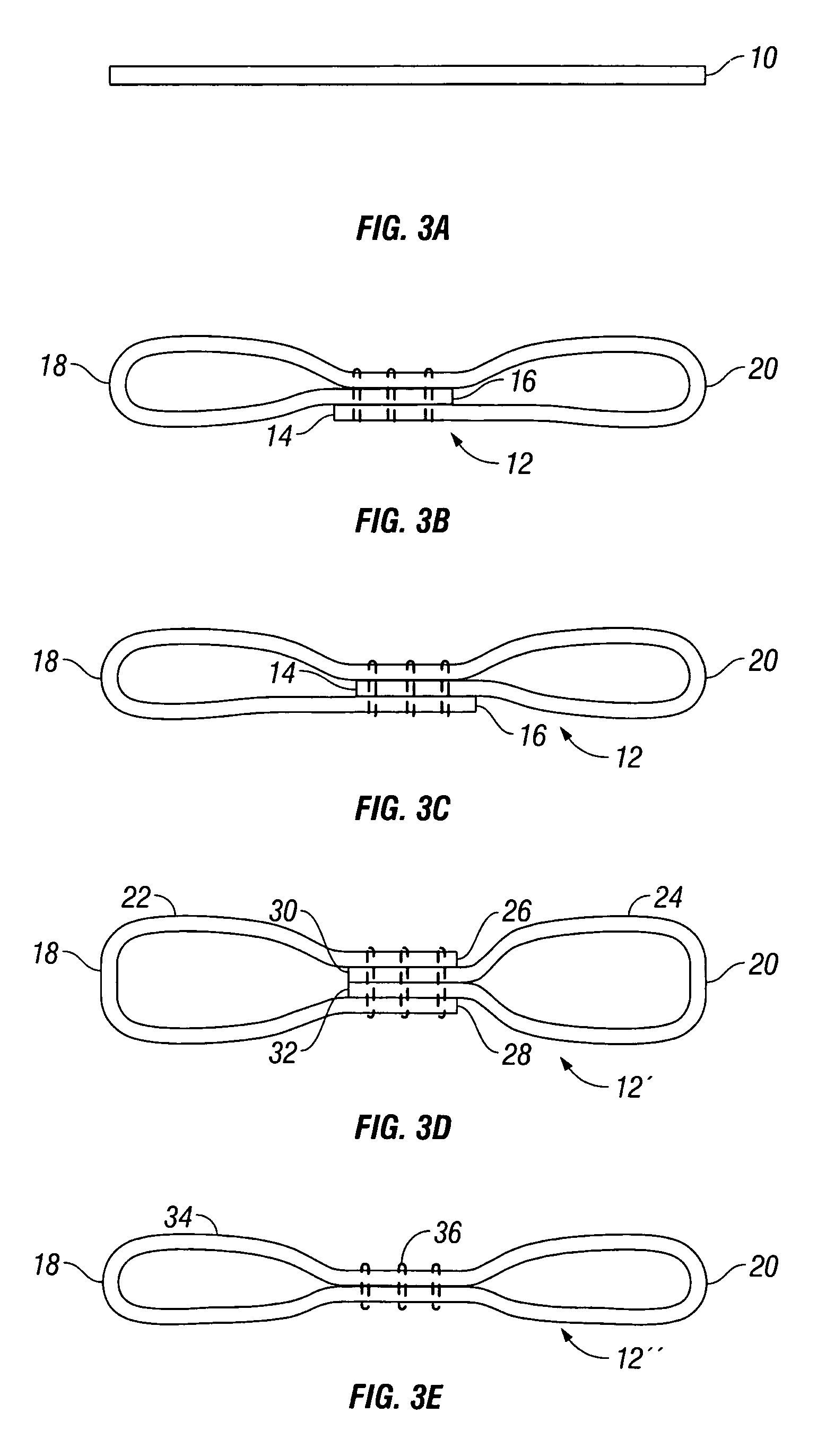Ergonomic seatbelt for improved belt safety and comfort
a seatbelt and ergonomic technology, applied in the field of seatbelts for automobiles, can solve the problems of significant disadvantages of these modified seatbelts, increased manufacturing costs and time, and increased cost of seatbelts. , to achieve the effect of improving the longevity of use of the device, simplifying the manufacturing method of seatbelts, and reducing costs
- Summary
- Abstract
- Description
- Claims
- Application Information
AI Technical Summary
Benefits of technology
Problems solved by technology
Method used
Image
Examples
Embodiment Construction
[0021] Referring now to the drawings wherein like reference numerals designate corresponding parts throughout the several views, FIGS. 1-4 illustrate a related art seatbelt and various embodiments of a seatbelt according to the present invention, respectively.
[0022] Specifically, referring to FIGS. 1 and 3(a), existing seatbelts typically include a predetermined width and a thin / flat cross-section. Such seatbelts, such as seatbelt 10, are generally formed of thin stretches of woven vinyl. Conventionally, when in use, seatbelt 10 is worn across the shoulder-blade and torso of an individual, as is well known and shown in FIG. 2.
[0023] Seatbelt 10 illustrated in FIGS. 1 and 3(a) is problematic in its safety and comfort. From a safety point of view, in the event of a crash, such seatbelts have a tendency to cut or burn the user's neck and / or the shoulder-blade area due to friction. Further, such seatbelts also have a tendency to cut the user's torso. From a comfort point of view, such...
PUM
 Login to View More
Login to View More Abstract
Description
Claims
Application Information
 Login to View More
Login to View More - R&D
- Intellectual Property
- Life Sciences
- Materials
- Tech Scout
- Unparalleled Data Quality
- Higher Quality Content
- 60% Fewer Hallucinations
Browse by: Latest US Patents, China's latest patents, Technical Efficacy Thesaurus, Application Domain, Technology Topic, Popular Technical Reports.
© 2025 PatSnap. All rights reserved.Legal|Privacy policy|Modern Slavery Act Transparency Statement|Sitemap|About US| Contact US: help@patsnap.com



